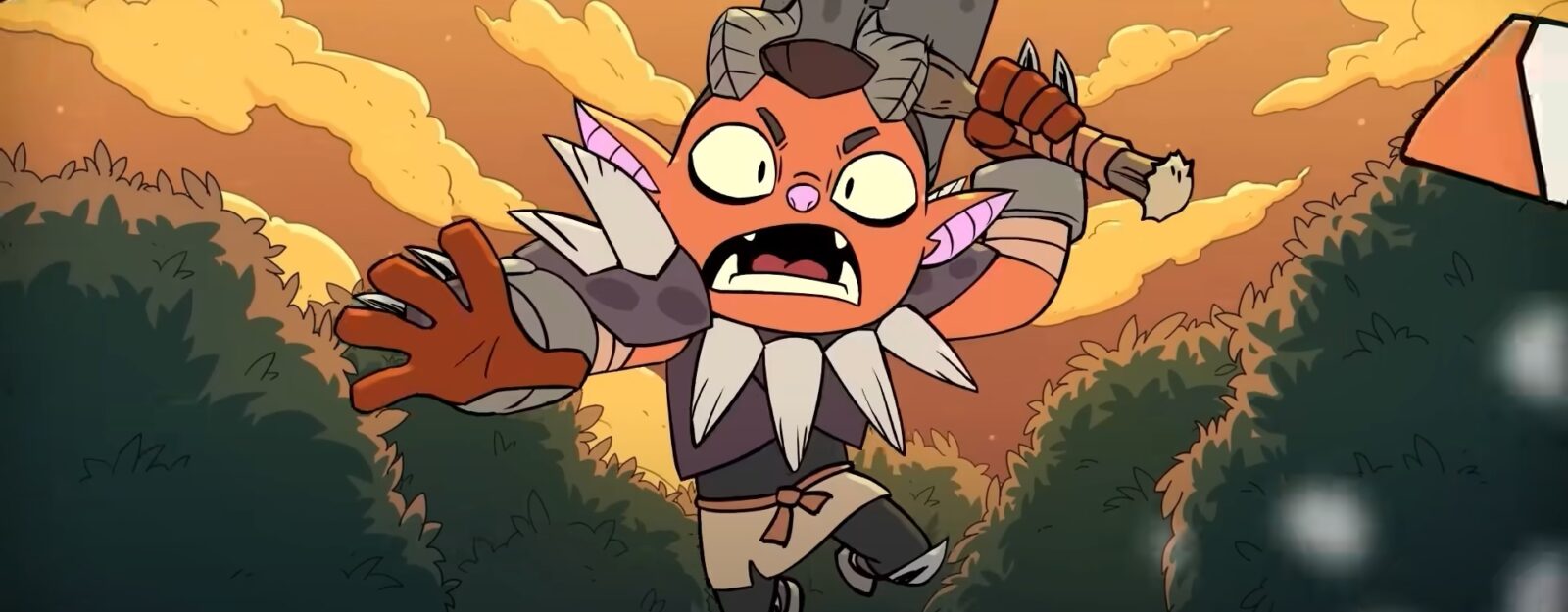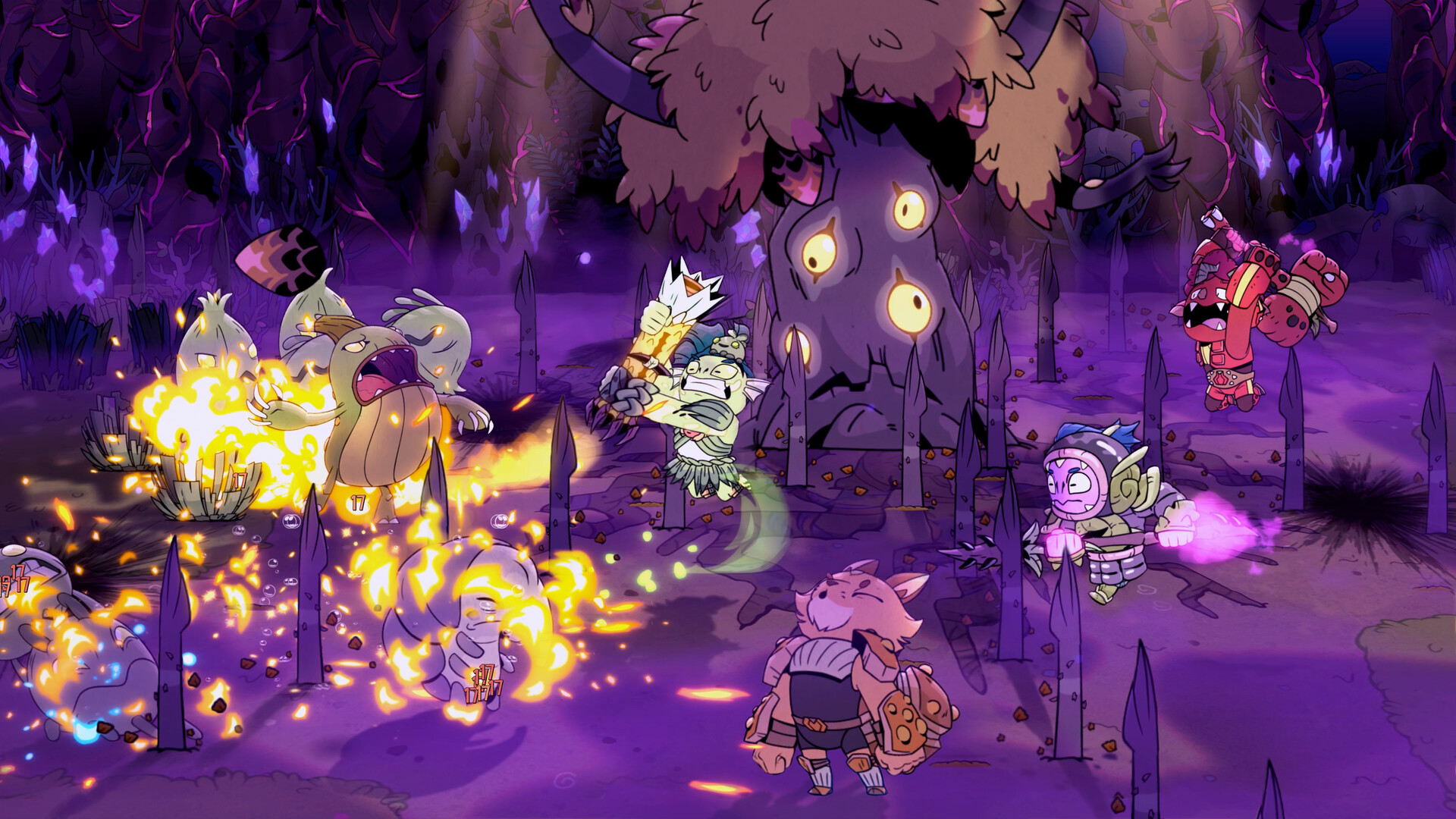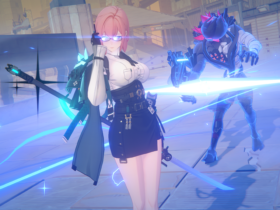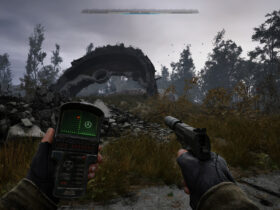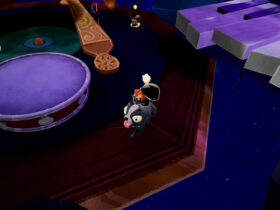Rotwood is an action roguelite dungeon crawler from developer Klei Interactive (Don’t Starve, Oxygen Not Included, Mark of the Ninja) that was released into Early Access earlier this year. While on the look out for a couch-coop game to enjoy with friends (of varying gaming proficiency) over a weekend Rotwood caught our eye as it looked engaging and content-rich enough for a good time, despite it’s early access label.
Here is an overview and our thoughts after diving into the corrupted forests for a weekend.
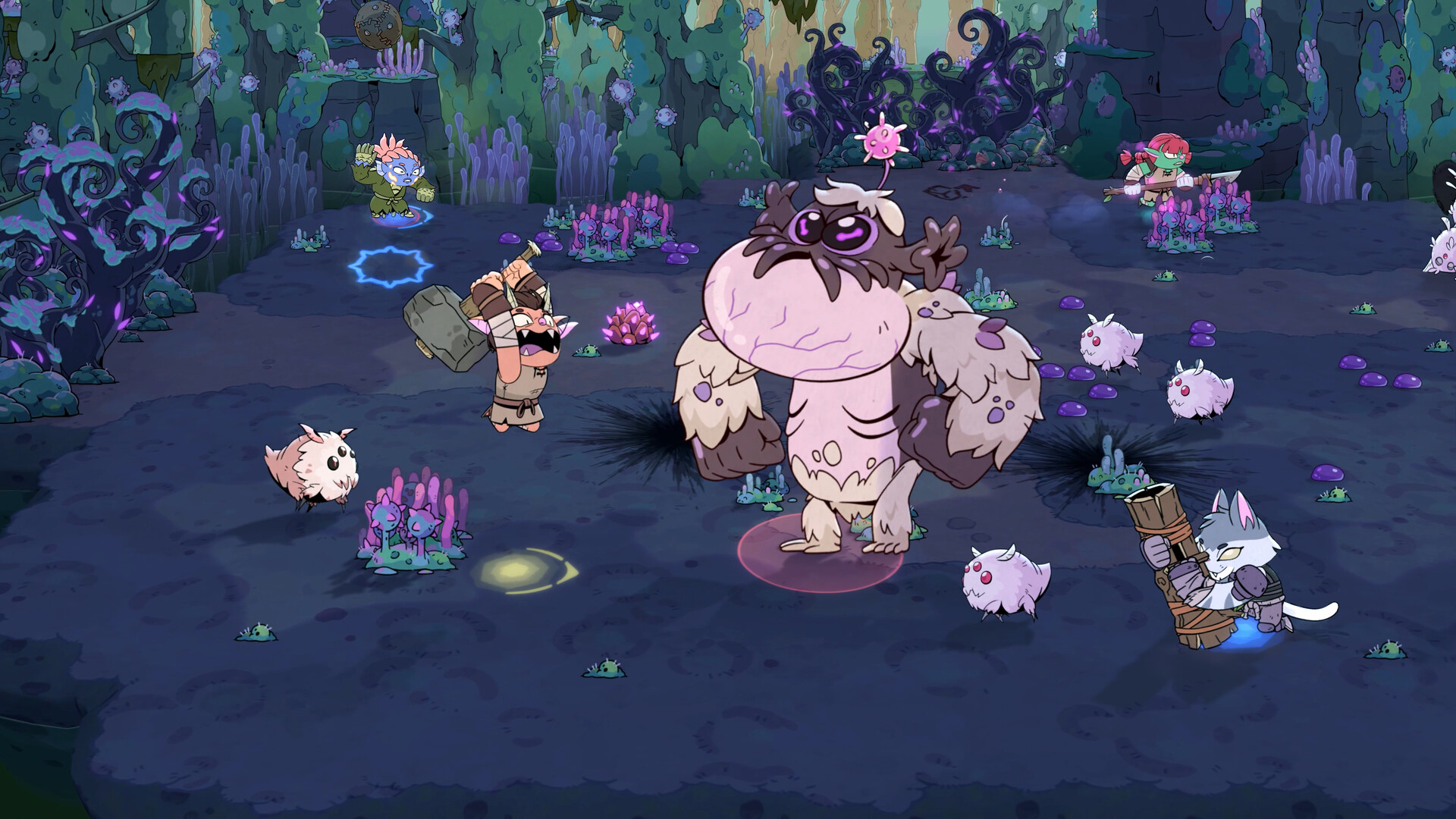
Early Access Content
If you’re anything like me, you’re weary of early access and the potential for disappointment. The good news is, Rotwood delivers a solid experience with enough content to see you playing for many hours. The bad news, the early access cracks start to show up the deeper in you get. That said, if you go into this game with an awareness of it’s limitations you’ll still be met with an engaging and rich enough game that caters to both “gamers” and “non-gamers” alike to get you excited for what Klei will deliver with the 1.0 release.
Minor patches are released nearly daily and if Klei’s track record is anything to go by, this is a safe bet that Rotwood will reach 1.0 with it’s kinks well ironed out. They’ve mastered the early access formula and know how to use it to their advantage to create the best possible game they can.

Combat
Rotwoods combat is on first glance, rather simple, as you swing your mighty hammer too and fro. Squint and you’ll see more depth with some simple input combos helping break the monotony of simply spamming the light-attack button. By mixing heavy, light and special attacks along with movement you’ll be able to mix in some satisfying flourishes and swings that start to reveal the games true skill ceiling.
Weaponry is an important part of the combat in Rotwood and is unlocked as you progress through the game. Different weapon types are initially locked behind an in-game paywall, though you’ll be able to afford a new weapon after a few dungeons. Once a weapon type has been unlocked, you’ll receive the basic version and gain the ability to purchase alternative versions of said weapon. These alternate versions offer not just stat boosts but additionally combo adjustments, adjusting the way you’ll play if you want to take advantage of what the weapon has to offer. One thing we found especially cool is the variance in weapon play. For example, it may seem obvious how a hammer and a hand-cannon would play differently but it’s not just one has range and one doesn’t, the cannon introduces a reload mechanic and the reload mechanic includes a quick reload mechanic. If you miss a quick reload your character spills their cannonballs on the ground and has to painstakingly pick them up. Additionally, using the cannon disables dodge roll (which you’ll for sure have gotten used to abusing), rather it allows you to fire a burst in a shotgun-like manner that pushes you backwards and (hopefully) out of danger. The weapons are by far the most game-changing aspect of the combat and while at present (and maybe forever) the game only offers 4 weapon types there’s enough complexity here for fun and mastery.

Similarly, new armor can be bought in stores which are found while dungeoning and offer basic armor and health boosts as well as playstyle adjusting bonuses. For example, one set added the bonus that let me damage enemies by running into them, the damage scaling with my movement speed.
The final piece of the combat puzzle are the skills. Skills come in two flavors, ultimate skills and, uhh, basic skills? These are found by clearing skill rooms or getting lucky in the, “gambling rooms” as we liked to call them. The skill pool is also slowly expanded upon as you progress through the game, your level determining when you’ll get access to new skills. Skills are fairly varied with none totally changing the game or making you overpowered but most feeling valuable. There were indeed times where we would scoff at the skills available and reluctantly distribute them and then there were times the skill and itemization stars would align and we’d have built a lightly purring engine of destruction – never to an overpowered, game breaking level but enough to feel like it was going to be an especially good run. You can imagine what might happen if you’re wearing the run-into-enemies armor mentioned earlier and you happen upon a trove of skills that boost movement speed.

Village
One mechanic that felt superfluous was the town decoration mechanic. While dungeoning you can find crafting materials, special twigs and what-not which are used to, you guessed it, craft things. One aspect is crafting upgrades for your weapons and armor – these generally just result in basic stat increases. Another aspect is using these materials to craft decorations for your town. These can be placed wherever you’d like and I’m sure there are some players out there would would enjoy this. From my perspective however, this was little more than a more-complicated-than-it-needs-to-be collectathon mechanic that I would’ve completely glossed over had it not been for the juicy rewards you get for crafting each object for the first time.
Besides that, the village didn’t undergo much transformation besides the fairly standard new villager joins the village and offers new menus for you to explore affair. Despite that, the village serves as a competent hub and breathing room before you dive into your next dungeon.

Co-Op
So, as stated at the top, I played this game with friends over a weekend. We played 4 player and 3 player on a Steam Deck docked, connected to our TV and besides some funk with aligning controller to player (which I will take some of the blame for) it was an extremely friendly couch co-op process and if (unlike me) you’ve got everything already set up, you’ll be up and running with little effort. Rotwood also has no concern with players dropping out as they wish with the save being locked to 4 characters who are free to drop in and out. For us this worked well as one friend had to leave early, the remaining 3 were able to continue on as if nothing had happened.
It might seem like a small thing but it’s hard enough to find a good couch co-op game as it is so having things just work is always a pleasure.
As for difficulty, the game is a roguelite, so you can expect to die a lot. While playing co-op a run is only ended if all players die so this meant that different skill levels could play together with the more hardcore of us being able to carry at times – but never completely carry the game. I wouldn’t recommend the game to complete newcomers to gaming but those who game casually or with friends and know their way around a controller should have no problem.

Progression & Enemies
The main loop of Rotwood is dive into a dungeon, clear room to room until you reach the boss, do your best to defeat the boss and if you succeed, you’ll unlock the next dunegeon as well as a higher difficulty in the current dungeon. Higher difficulties offer better rewards and as you’d expect, more challenge. They also offer more enemy variety with new stronger variants appearing that introduce new attack patterns. This helps keeping replaying the dungeons fun and engaging, rather than just the same dungeon but monsters have higher stats.
New dungeons offer a whole cast of new enemies and items. Visually they’re essentially biome switches with each feeling visually distinct but still home within Rotwood.
Enemy variety and clarity is one area where I think Klei have really shown their skills as a game developer. Basic enemies are all varied in their attacks and telegraph them well (some of the quicker enemies can be a challenge but they come later), some being variants of bosses and some being variants of basic enemies but the game does a great job of making it clear what each enemy is and what it can do. Boss fights are also varied and interesting with harder difficulties mixing up their attack patterns to keep you on your toes. Once again, clearly telegraphed and easy to follow, which I’m probably underselling a bit. Klei really have done a fantastic job with clarity and variance.
Conslusion
My friends and I found Rotwood to be a very enjoyable time that held our attention through the entire weekend and while we did start the see the cracks of early access, we were happy to keep playing and push as far into the game as we could. The group is unfortunately seldom together so it will be some time before we can dive into the game again but in a way I think it’s a good thing as by then Rotwood will have received more updates and maybe even be in 1.0. I for one am excited to dive back in and have been resisting the urge to play the game solo.
If you’re a fan of roguelikes and lites you’ll feel right at home with Rotwood. If you have friends to play it with, even better.
At time of writing Rotwood is priced at a €10,79 (which is a steal if you ask me). Klei have stated that the price will increase as they develop the game, so get in while the price is low even if you let it sit in you library until it’s fully baked.
Check out the game on Steam!


